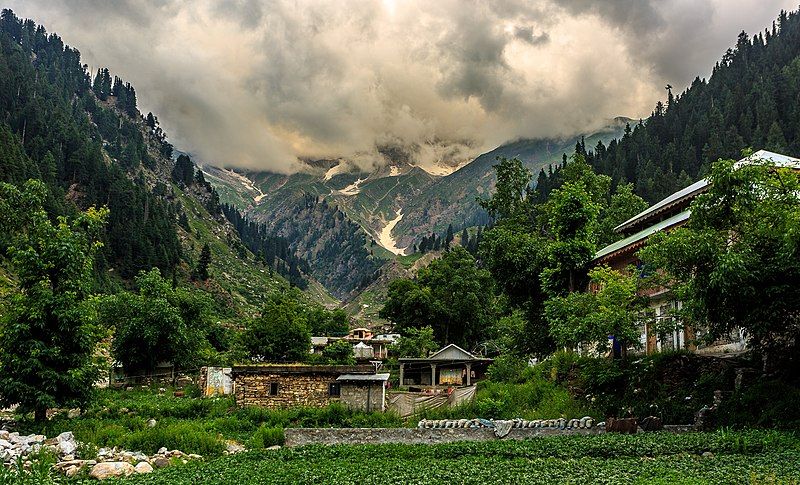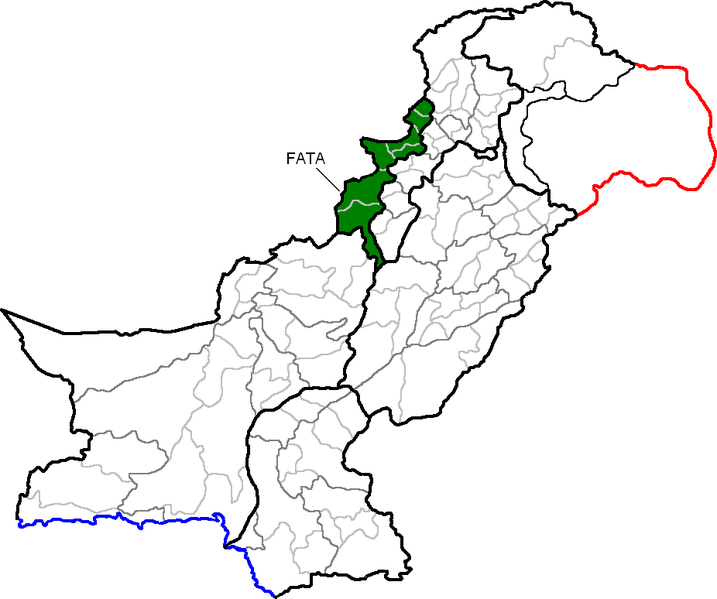
Pakistan merged the former Federally Administered Tribal Areas (FATA) along the Afghanistan border into the adjoining Khyber Pakhtunkhwa (KP) province in May 2018, ending the century-old colonial administrative structure of the region by bringing it into the constitutional order and extending political and economic benefits to its inhabitants. The much-awaited and anticipated merger with KP was aimed at empowering Pashtun tribesmen of the border region and giving them basic citizenship rights along with positive changes in their lives. Pakistan’s central government announced a five year plan for the mainstreaming process. Now, five years later, cosmetic administrative actions have been taken to integrate the tribal areas into the mainstream governance system, however, bringing a positive change in the lives of the Pashtun tribesmen remains a far cry.
Colonial Legacy in Pakistan’s Wild West
As the British were trying to consolidate their position in the Indian subcontinent, colonialists carefully divided regions that could help them in maintaining stability in India and strategic prominence in the region. The erstwhile FATA was one such formation, which the British used as a buffer zone between their Indian dominion and Afghanistan, and their archrival, the Russian empire. While the British left the Indian subcontinent in 1947, they left their colonial legacy behind, which both India and Pakistan inherited. With the British departure, Pakistan did not discard FATA but continued in the same fashion as the British and used FATA as a strategic asset against the USSR and democratic Afghanistan.
Since Pakistan’s independence in 1947, the former FATA region has been governed separately from the rest of the country under special laws called Frontier Crimes Regulation (FCR). The British government introduced the draconian FCR regulations in 1901 to quell the Pashtuns’ resistance. As part of the framework, the colonial power granted so-called independent control over territory in the border region to the Pashtun tribesmen settled in the seven tribal districts. However, since the region was volatile and strategically important for Pakistan, it was directly ruled from Islamabad, without any political representation in the country’s parliament.
With the British departure, Pakistan did not discard FATA but continued in the same fashion as the British and used FATA as a strategic asset against the USSR and democratic Afghanistan.
The Mainstreaming of FATA
After years of debates, discussions, demands, and consultative processes, Islamabad decided to merge the erstwhile FATA with a neighboring province, KP. The 25th constitutional amendment was passed on May 31, 2018, which allowed the merger of FATA with KP. Under the plan, Pakistan’s central government announced both short and long-term plans for the region – the gradual mainstreaming of tribal areas within five years, and bringing the region to par with the rest of the country under a 10-year special development package of USD $367 million (Rs. 1 trillion).
The development plan delineated three phases of execution. The first two phases covered three years each, and the third phase would take four years. Moreover, constitutional and legal reforms were also promised. For example, the merger promised to permanently repeal the colonial FCR and extend the jurisdiction of the supreme court and high court to the former FATA region. Moreover, in place of the FCR, the merger would temporarily introduce the FATA-Interim Regulations under the FATA Reforms Bill, followed by the standard rules and regulations of KP.
While these few components of the mainstreaming project were major, there were other minor ones as well. However, there were doubts about the merger and many thought that it might be an act of Pakistan surreptitiously quelling the Pashtun protests.

The Status of FATA Mainstreaming
While the state promised many things to the people of former FATA as part of its mainstreaming project, full mainstreaming remains a pipedream even to this day. Five years since the project was first launched, there has been very little development. The former FATA region remains as underdeveloped as it was in 2018. It is far behind other regions in terms of human development and infrastructure. For instance, the only university in the region, FATA University, has been functioning with just ten classrooms for the last seven years. Schools and colleges are in disrepair with no government investments to level them with the those in the rest of the country. Other problems include excessive power load shedding, shortage of drinking water, damaged houses of internally displaced families, and shortage of health facilities.
Likewise, the FCR remains functional in many cases as before. While the federal government had promised to provide funds for the mainstreaming project, the funds released have also dwindled over time. Corruption has factored in as well, depriving people of their constitutional right to fair financial shares. Not only this, but the federal and provincial government’s poor management infrastructure has proven incapable of supporting the rollout of the allocated financial share to ex-FATA. Moreover, the PTI government, both provincial and federal, neglected the tribal districts for a long time. In addition, the security of the tribal districts has not improved even with the merger. Returning in 2021, the TTP has not only thrown the region back into turmoil but has also strengthened its position and is expanding rapidly.
People’s Grievances and The Way Forward
As the mainstreaming of former FATA has failed to provide residents with positive results, local communities have voiced grievances against the merger of the FATA region into KP. They argue that while with the merger brought six National Assembly seats, the region also lost Senate seats. With the loss of the Senate seats, the people of ex-FATA lost the little available political representation in the country’s parliament. Moreover, with the merger, former FATA also lost seats in educational institutions across the country, which has led to the FATA Qaumi Jirga protesting against the merger. These events point to public frustration and disappointment in the state’s unfulfilled promises.
As the mainstreaming of former FATA has failed to provide residents with positive results, local communities have voiced grievances against the merger of the FATA region into KP.
To make the mainstreaming a success, Pakistan should fulfill the promises it made. Firstly, it should invest in the education sector of former FATA as the region’s literacy rate is very low and the education system is crumbling. The center should build more universities, colleges, and schools, and equally staff them with teachers. Secondly, the government should guarantee the provision of fair financial shares to the people of the merged districts. Thirdly, Islamabad should stop the embezzlement of funds for ex-FATA’s mainstreaming and make the fund-releasing process transparent. Fourth, the central government should make the same rules and regulations for the merged districts as those of KP and develop the health sector. Lastly, Pakistan should prioritize investing in the security of the -FATA region as the law-and-order situation there is deteriorating with each passing day.
Also Read: Pakistan’s Resurgence of Terrorism During Election Year
***
Image 1: Khyber Pakhtunkhwa via Wikimedia Commons
Image 2: Map of ex-FATA via Wikimedia Commons


